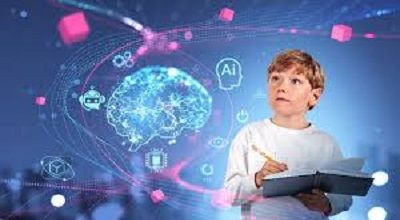Revolutionizing Education
Now here, Revolutionizing Education in 2024: Exploring Virtual Reality Classrooms. In the ever-evolving landscape of education, 2023 has witnessed a groundbreaking shift in the way students learn and teachers instruct. Virtual Reality (VR) technology has taken center stage, transforming traditional classrooms into immersive digital environments. This trend is gaining immense popularity in the Philippines, redefining the educational experience for both students and educators.
Exploring Virtual Reality Classrooms:
Revolutionizing Education has brought a new dimension to education, enabling students to transcend the limitations of physical classrooms. With VR headsets and interactive tools, learners can now embark on virtual field trips, historical reenactments, and scientific simulations. Imagine studying history by virtually walking through ancient civilizations or grasping complex scientific concepts through hands-on VR experiments.
Benefits for Students:
- Engagement: VR classrooms captivate students’ attention by offering a multi-sensory experience, enhancing retention rates and understanding.
- Personalized Learning: VR environments can adapt to individual learning styles, providing customized educational pathways.
- Global Connectivity: Students can collaborate with peers from around the world, broadening their cultural horizons and fostering a global perspective.
- Overcoming Physical Barriers: VR classrooms are particularly beneficial for students with disabilities, as they can participate on an equal footing with their peers.
Transformation of Teaching:
Educators are embracing VR as a tool to revolutionize their teaching methodologies:
- Interactive Lessons: Teachers can create interactive 3D models and scenarios to make abstract concepts more tangible and engaging.
- Real-World Context: Incorporating VR allows educators to contextualize lessons, making them more relevant to students’ lives.
- Global Learning Communities: Teachers can connect with fellow educators worldwide, sharing best practices and collaborating on innovative lesson plans.
Challenges and Considerations:
- Access and Equity: Not all students might have access to VR technology at home, potentially exacerbating educational inequalities.
- Content Quality: Ensuring the accuracy and quality of VR educational content is essential to prevent misinformation.
- Teacher Training: Educators require training to effectively leverage VR tools and create immersive learning experiences.
- Health Concerns: Prolonged VR use might cause discomfort for some students, emphasizing the need for ergonomic design and appropriate breaks.
The Future of Education:
The integration of VR classrooms in the Philippine educational landscape signifies a leap towards personalized, engaging, and inclusive learning. As technology continues to advance, the role of educators will evolve into that of facilitators and guides, fostering critical thinking and problem-solving skills in students.
Conclusion:
In 2024, the Philippines is witnessing a remarkable educational transformation through the adoption of Virtual Reality classrooms. This trend is reshaping how students learn, interact, and experience education. As the benefits and challenges of this trend continue to unfold, it’s evident that VR is not just a passing fad but a powerful tool that has the potential to redefine education for generations to come.
